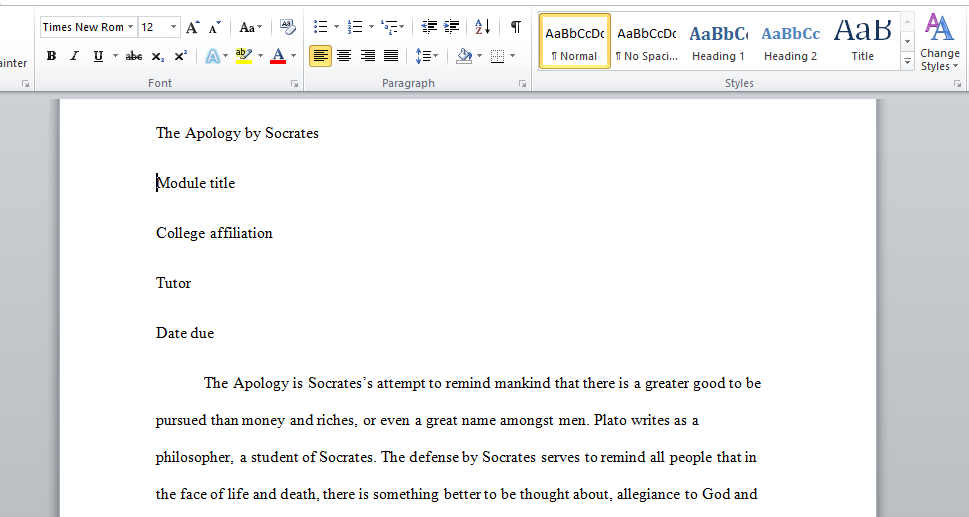Describe’The Apology by Socrates ‘
Use the reading from “The Apology Plato (428-348 BCE)
1. Identify an issue in one of the readings that provoked a significant response from you.
2. Identify the context of= the author and indicate how this might shape his/her views.
3. Consider that author’s experiences (as well as your own)
4. Reflect on why you think it is that this reading or issue prompted your response. Be open to whether or not the authors’ ideas are true and how they
may have challenged or confirmed some prior belief you may have had.
5. Consider how you might apply this perspective to the ways in which you think and act moving forward
The Apology1
Plato (428-348 BCE)
Socrates (possibly the most famous philosopher n Western thought) is accused of
corrupting the youth and not believing in the Greek gods (although he does, in fact,
believe in God- bit not one like the immoral gods of Greek mythology). His accusers
Meletus and Anytus seek the death penalty from the Athenian court. Plato, his most
famous student, recounts the proceedings.In the following excerpts we see Socrates’
defense of his way of life—of the relentless questioning of authority and his pursuit of
truth and goodness.
(SOCRATES DEFENDS HIMSELF)
Someone will say: And are you not ashamed, Socrates, of a course of life which is likely to bring
you to an untimely end? To him I may fairly answer: There you are mistaken: a man who is good
for anything ought not to calculate the chance of living or dying; he ought only to consider
whether in doing anything he is doing right or wrong – acting the part of a good man or of a bad.
Whereas, according to your view, the heroes who fell at Troy were not good for much . . . Had
Achilles any thought of death and danger? For wherever a man’s place is, whether the place
which he has chosen or that in which he has been placed by a commander, there he ought to
remain in the hour of danger; he should not think of death or of anything, but of disgrace. And
this, O men of Athens, is a true saying.
Strange, indeed, would be my conduct, O men of Athens, if I who, when I was ordered by the
generals whom you chose to command me. . . remained where they placed me, like any……………………………………………………………………………………………………………………………………………….
……………………………………………………………………………………………………………………………………………………..
Answer preview:

Words: 436
